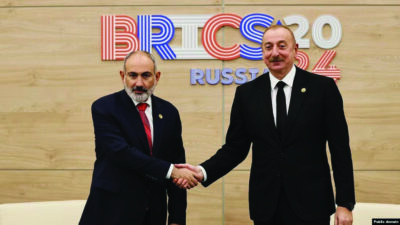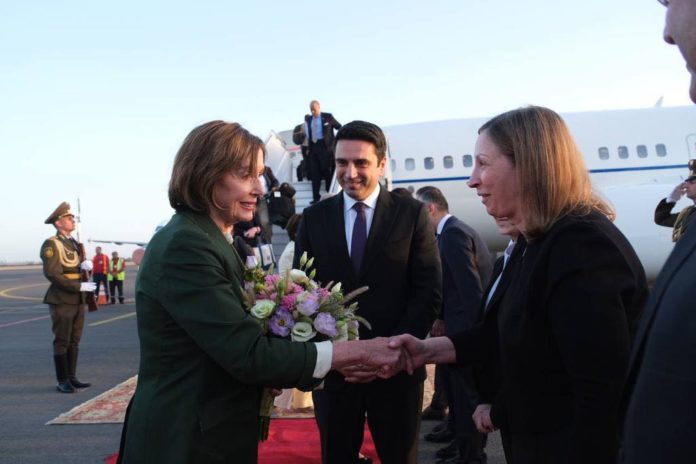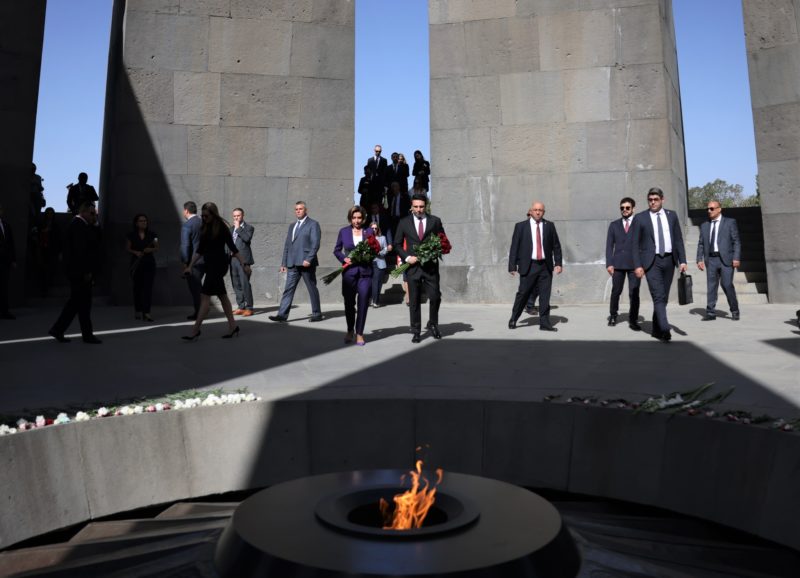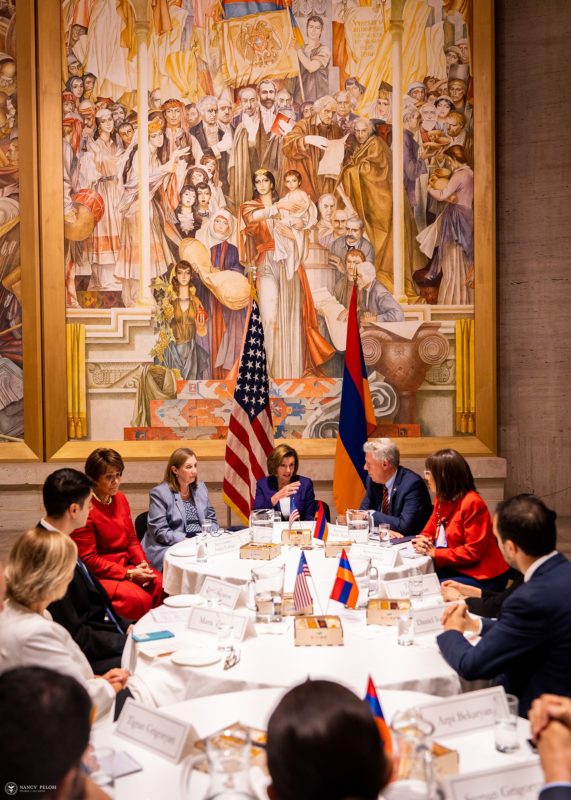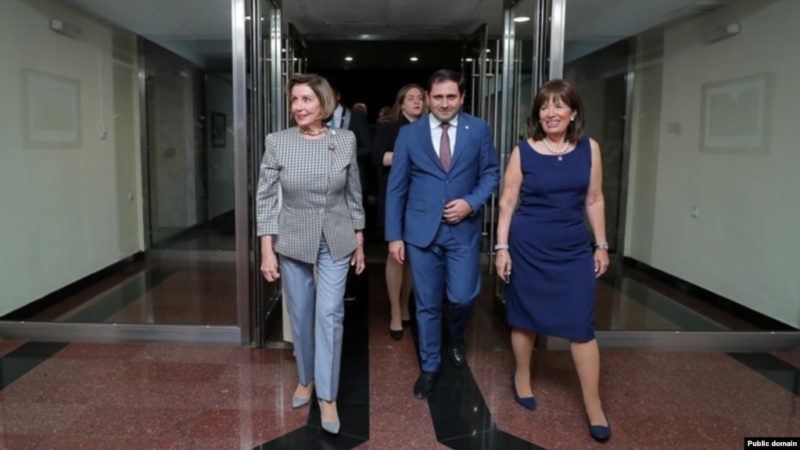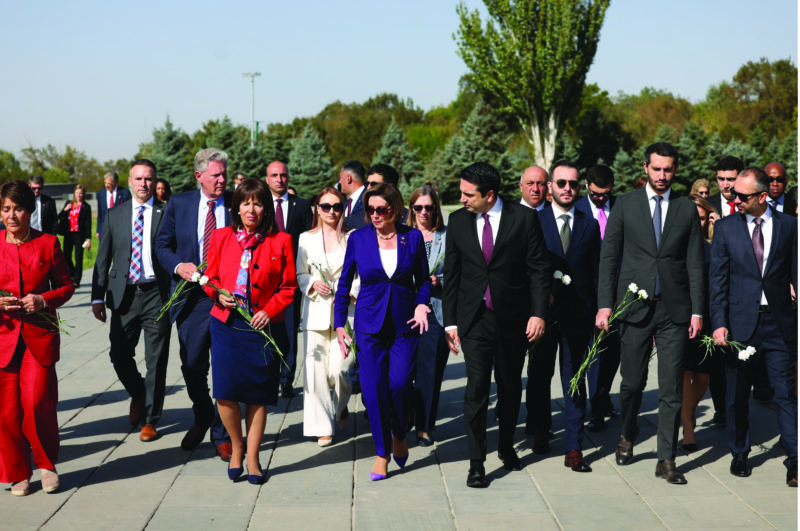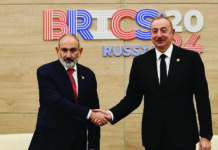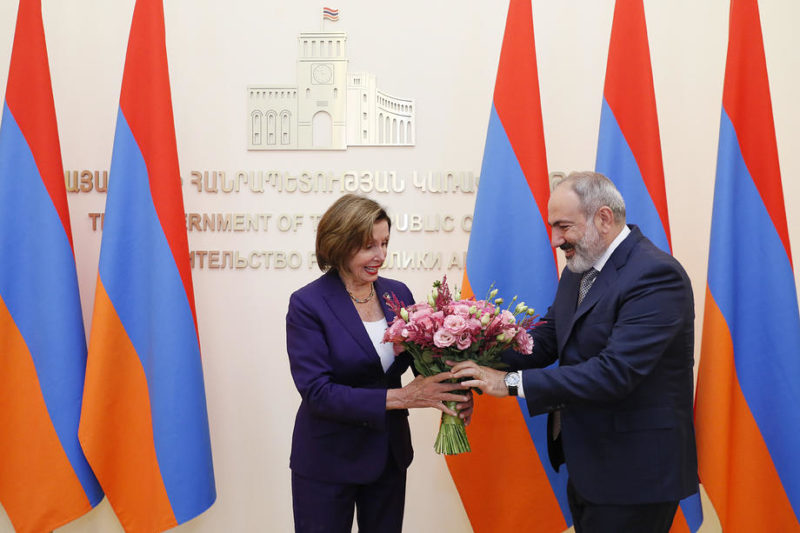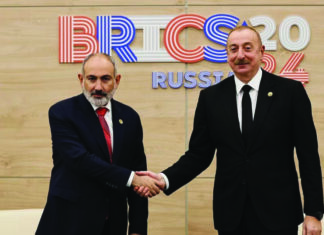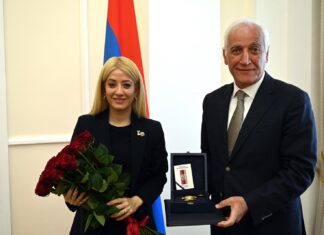YEREVAN (Combined Sources) — US House of Representatives Speaker Nancy Pelosi led a high-powered delegation to Yerevan on September 17, stunning friends and foes alike, giving a lift to the besieged Armenian nation suffering from attacks by Azerbaijan September 12 and 13, which resulted in at least 135 deaths.
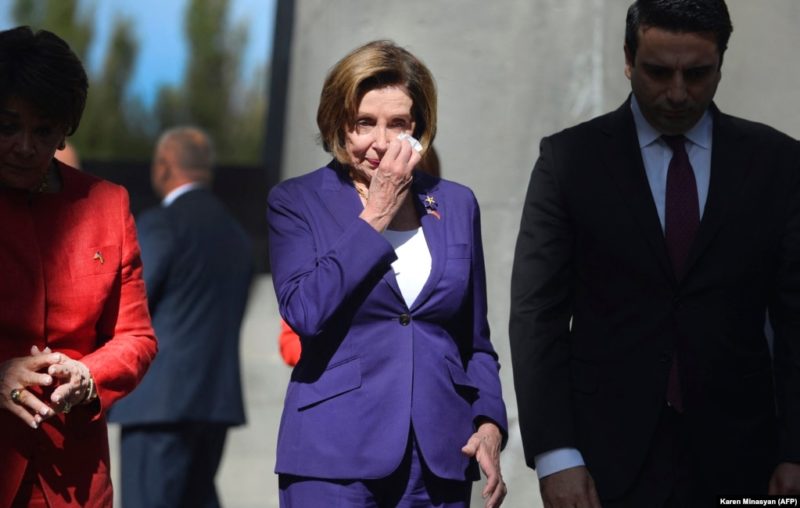
Pelosi, who was accompanied by Armenian-American members of the House of Representatives Anna Eshoo and Jackie Speier, both Democrats of California, and Rep. Frank Pallone (D-NJ), blamed Azerbaijan for the latest outbreak of fighting with Armenia, as she made a high-profile trip to Yerevan in a public show of support.
Pelosi is the highest-ranking US official to travel to Armenia since the country gained independence from the Soviet Union in 1991.
Asked at a Yerevan news conference about the latest spasm of fighting, which erupted last week, Pelosi said her trip had particular significance following the “illegal and deadly attacks by Azerbaijan” on Armenia.
“We strongly condemn those attacks,” Pelosi said, adding that the border fighting was triggered by Azerbaijani attacks on Armenia.
“As for what Armenia expects [from the United States], we expect active support for [our] democracy, sovereignty, and territorial integrity in all possible directions,” Alen Simonyan, the speaker of Armenia’s parliament, said at the news conference.
